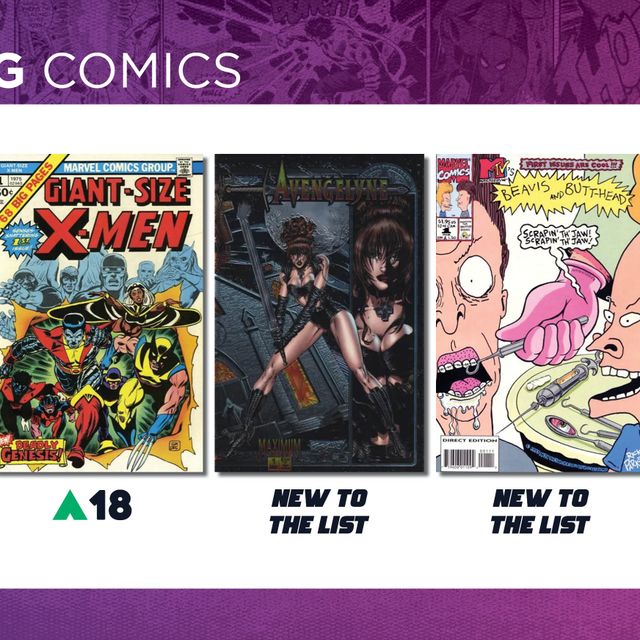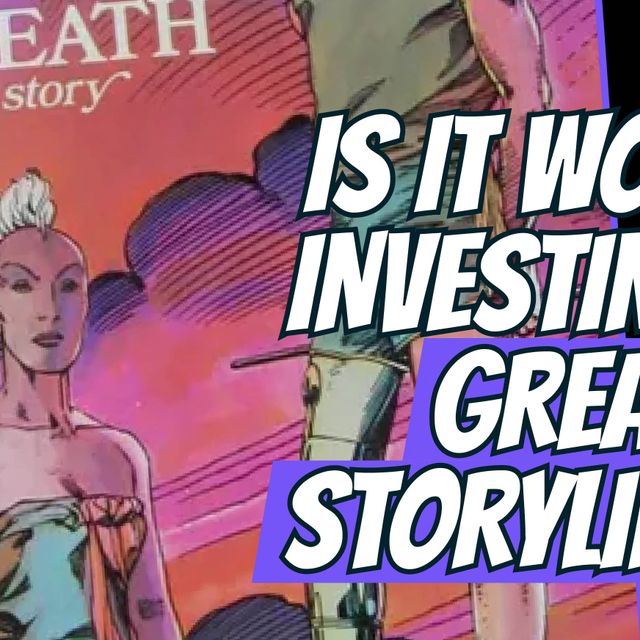
How do we relate to an object once we can no longer use it for its intended purpose?
Okay, so it's not that Thing, nor this thing, nor that thing, but it's the actual comic book we hold in our hands. (Or the plastic case surrounding the comic book we hold in our hands.)
How do we relate to an object once we can no longer use the object for its intended purpose?
It's a question I often wonder as I look through my handful of graded books and whenever I attend a comic convention. I think of all the comic books that will forever go unread.
Unread Comics
It's a tag I see quite a lot in ads purporting 9.6 or 9.8 status of a comic book. It makes me sad. This same emotional reaction is what motivates me to pick up literary classics from the shelves of thrift stores and off the tarps of swap meets. Books are meant to be read. These were objects meant to translate ideas of other human beings into our own minds and to share a perspective.
Practicality
I get it. I'm right there with you. I have my sealed X-Men #266, and it's not leaving that case until after it leaves my hands. It's valuable and I'm going to keep it in there to make sure it keeps its value. Not until human eyes can tell whether or not a book is 9.8 or 9.6 will I be fine with everything being unslabbed. (Maybe that could be a superpower... having the ability to instantly know the grade of a comic book after a single glance. Lucrative.)
The Inverse
But I can't shake this feeling of these books needing to be read in the format they were intended. This is important. It's also the reason why most people have a very difficult time reading authors like Dostoevsky, Tolstoy, Dickens, Dumas, and the like. They were serialized (the wiki entry has a marked absence of Russian history). They were the comic books of their day sans images. Some were pulpier than others, but they all came out on a schedule and were intended to be read in pieces. (Which is why anyone who attempts to read War and Peace in less than a month is an actual maniac.) How can we read these books and comic books without losing their intended materiality?
A Compromise
In my slow effort to collect older X-Men books, I've realized that I really want to read them. For the higher grade issues, a single read could add a crease here or there and drop the value by a point or two. So, I don't. But I've made a commitment to read the books that I collect, and the best way to do that is through collected volumes. Here, there are two options. You can pick up a Marvel Essentials of whichever title you'd like, but these books are only black and white. Or you can opt for the beautiful French-style book in the Marvel Omnibuses (Omnibi is also an acceptable plural). I went with the Omnibus and I've never looked back.
Value
What's cool about the Omnibus collections is that they are larger than the original comic book, they have absolutely fantastic colors, and are valuable in themselves. A first volume X-Men Omnibus fetches around $300 and as long as you don't place it in a sink, you'll be able to sell it for that much too.
In the End
If you are a serious collector and comic book lover, read what you collect. These things were meant to be held, flipped through, and appreciated. While I understand the hesitancy of reading rare and valuable comics, I think it's important we still use the objects for their intended purpose. An Omnibus or an Essentials might not be the thing itself, but it's pretty darn close. Don't forget to enjoy what you collect!





